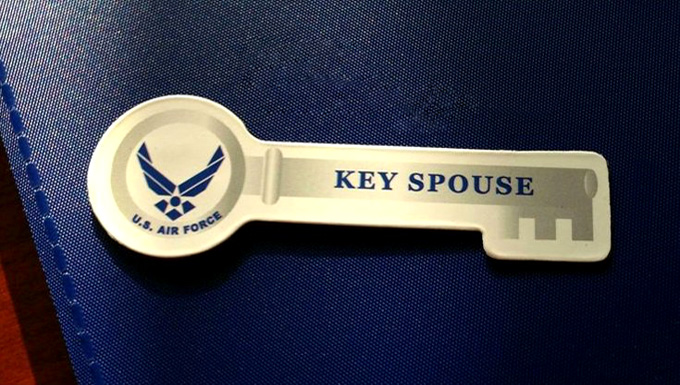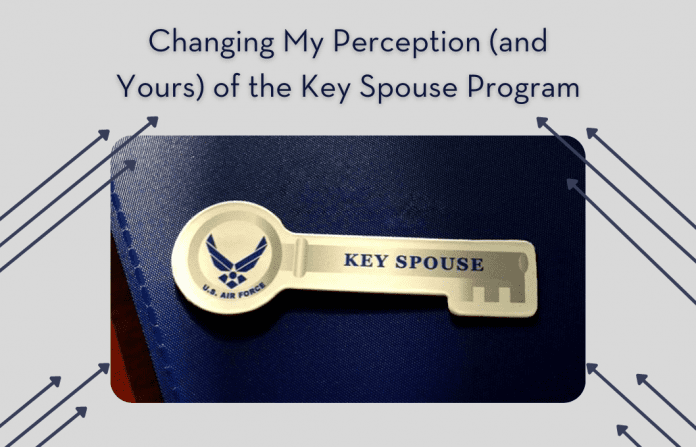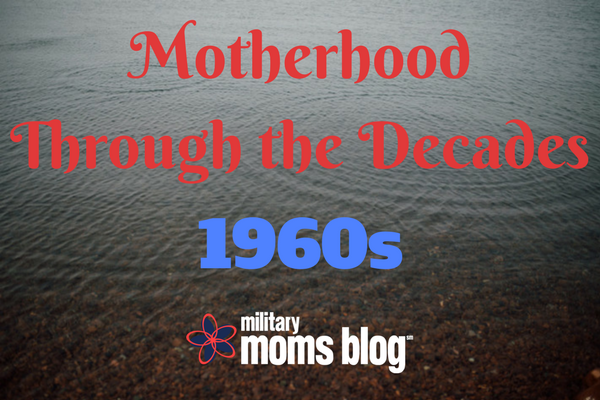The term “Key Spouse” (or even just “spouse”) can sometimes bring up some unfavorable feelings.
But how many of us really know what a Key Spouse is? And are they important? Or even necessary?
These are all common questions surrounding the Key Spouse Program, so let me spread a little knowledge.

The Key Spouse Program is fairly new to the Air Force. It was first developed and tested at five bases from 1996 to 1998 as part of a “quality of life” initiative for Air Force families. It worked out well and was later implemented as a standardized program in March of 2009.
A core element of the Key Spouse Program is that it falls under the direction of unit commanders, placing responsibility on them to establish and maintain the program within their unit. To put it simply, Key Spouses have direct communication with the commander and other unit leadership under the Key Spouse Program.
“…Key Spouses are there to be a bridge between the families and unit leadership…”
Key Spouses (or whatever title your branch uses for this position) are a way to integrate that family life into the military life, and to be able to advocate for help where needed. They are a significant and untapped network of information and resources to help navigate military life as they tend to have a high-functioning understanding of installation agencies, unit leadership, and military resources.
On paper, the Key Spouse Program is legit. Military life is hard, and it only gets harder the bigger your family grows and the more you move, so it’s comforting to know that there’s a group out there specifically for us to reach out to when we need a little guidance.
So why do they get such a bad rap?
I can only speak from my own experience, but I haven’t always had the best encounters when it comes to military spouses. I can’t place all the blame on them though.
For the longest time as an active-duty Airman, I had the mindset of “I am military first, a spouse second,” so I was already on the defensive anytime a spouse was brought up in a military setting. As I sat in Booster Club meetings, I would try to figure out why spouses even needed to be involved. This was our party because we earned it, not them.
Even as I transitioned from being in the military to working for the military, I still didn’t quite understand the role of Key Spouses in the workplace.
At that point, I was just struggling to fit in myself. By then I had a few kids and was still married to a military member, but I also worked with the military as a civilian. So I wasn’t a stay-at-home mom to be a part of mommy groups or couldn’t attend the spouse coffee dates because of work. The only side I really saw of them was handing out cupcakes and party planning, so what value did they really have?
Fast forward to a remote location where I didn’t have a job and there’s a global pandemic happening. My husband’s unit had just changed commanders, and I was asked if I would like to become a Key Spouse. I wasn’t sure what that meant, but why not?

Over the next couple of months, I met with the commander and other Key Spouses. Let me tell you that they were the most welcoming, non-judgmental group of spouses I have ever met!
I think in our first meeting the commander made a couple of statements somewhere along the lines of, “This is not a party planning committee” and “This is a voluntary position, so don’t feel obligated to participate in events.” He definitely made it clear that he doesn’t expect us to do anything we don’t feel comfortable doing, and my anxiety thanked him for that.
As time has gone on and I’ve been able to experience life as a Key Spouse, I’ve gained so much appreciation for the program as well as a better understanding of how military life affects family members.
This group of women I work with now have refined what it means to work together. They are inclusive, they utilize everyone’s skills, and there’s no rank association. Our “job” is to be there and support the military families when they need it. They rely on us as much as we rely on each other.
With all that being said, however, there’s still some animosity out there.
Most of the Key Spouse turmoil I’ve encountered has been with the Booster Club, which kind of makes sense. Their job is mainly party planning to boost unit morale and to connect better as a team, so what do Key Spouses have to do with that?
Then you have the keyboard warriors all over social media. There are groups and pages literally dedicated to making fun of “dependas.” And have you read the Military Times article asking for a “Director of Military Spouses?” I’ll let you make up your own opinion about that one. But no matter what angle you’re getting the criticism from, the problem seems to be the same: what’s the point of a Key Spouse?
Let me ask you another question: Have you ever made plans for yourself and then your military member suddenly remembers a squadron training event and can’t watch the kids for you now? Or have you been asking your military member for weeks to get an off-base referral for something only for them to tell you they forgot or haven’t heard back? Well, guess who could have told you about the training event coming up, or can get you at least a call-back for your referral? That’s right… the Key Spouses!
The point of all this is that while the Key Spouse Program can be such a tremendous resource, it still doesn’t get the attention it should. So, can we fix it? The short answer is… maybe?
Just like any good relationship, communication is key, and I think that needs to start with the military:
Maybe if someone explained to me what a Key Spouse was back in my Booster Club days, I wouldn’t have been so apprehensive about it all these years.
Maybe if we stop lumping all spouses in with those who have a “strong” appreciation for their military members’ rank, we can let go of this dependent stereotype.
Maybe if we stop trying to keep military work completely separate from life outside of work, we can actually have a work-life balance.
Maybe if we give the spouses a voice and someone listens to our grievances, we won’t be so quick to shout.
Military life is hard. There are so many important life events that get missed out on because of it, so why do we need to keep families at such an arm’s length away? Old habits are hard to break, but maybe we can convert the negative association one spouse at a time.











